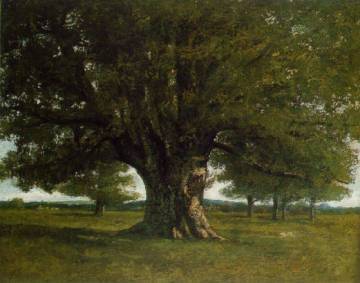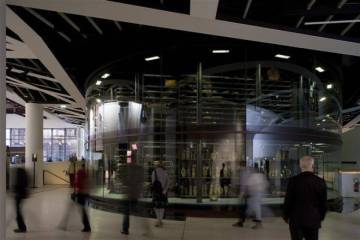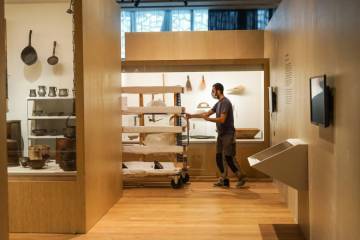The life of collections
A «museum of France», within the meaning of the French Heritage Code, is above all a «permanent collection composed of goods whose conservation and presentation are of public interest and organized for the knowledge, education and pleasure of the public». The enrichment of the museum’s collections is therefore fundamental. Once the object enters the museum, it begins a new life, under the responsibility of the professionals of conservation of the collections. The latter will ensure the preservation and dissemination to the public, through the presentation in the room or through digital.
Collections at the heart of France’s museums
National treasury
The collection – even virtual – is the heart of the museum. The collections of museums in France therefore benefit from a protective legal regime: that of national treasure.
Inalienable, imprescriptible and elusive collections
If they belong to public persons (state or local authorities), the collections are inalienable, imprescriptible and elusive. This means that:
- the legal entity that owns the property may claim its property in the hands of a third party without a time limit (in the case of theft, for example);
- that the goods cannot be sold (under penalty of nullity);
- and, finally, that these assets cannot be the subject of foreclosure proceedings initiated by creditors.
If the collections belong to legal persons under private non-profit law (associations or foundations), they are also imprescriptible and elusive.
Responsibilities
In return, the Heritage Code imposes certain responsibilities on the owners of these collections:
- make them better known, in particular through inventory and regular proofing;
- to promote policies of rational enrichment, circulation and dissemination of collections;
- and finally, to ensure their preservation by ensuring their preventive conservation, safety and security, in order to ensure their transmission through the generations.
Enrich collections
Collections managers, through patient scientific work, seek to ensure the completeness of the collections for which they are responsible.
The enrichment of collections is one of the fundamental missions of museums in France. The acquisition of a cultural property for the benefit of a museum in France must be justified in view of its public interest from the point of view of history, art, archaeology, ethnology, science or technology.
Bringing a cultural property into the collection of a museum in France transforms its legal nature by integrating it into the public domain. This is an irreversible process in principle. The acquisition of a work is therefore an act with serious consequences, both scientifically, legally, economically and ethically. It must therefore be carried out with due regard for the consequences, in order to avoid introducing into public property a problematic good.
This requires a real reflection on the part of curators and collections managers, as well as respect for principles and procedures.
A coherent procurement policy
The collection enrichment policy of a museum in France is based on a «scientific and cultural project» (PSC), developed within the institution to define, in the medium term (five to ten years), a coherent scientific policy, and in particular the main axes of the strategy of enrichment of the collections.
Procedures
Procurement proposals are subject to the prior opinion of advisory committees:
- Regional scientific commission for museums in France whose collections do not belong to the State (local authorities, associations, etc.);
- Art council of national museums, for the museums of France whose collections fall under the State.
State financial aid
Museums in France that are not national can benefit from State aid under general arrangements, such as the Fonds régional d'acquisition pour les musées (FRAM) or exceptional, such as the Fonds du patrimoine (national museums are also eligible for the latter).
Generosity, an essential source of enrichment of the collections of museums in France
If collections managers are to remain attentive to opportunities on the art market, they must also create close links with collectors. Generosity remains, in fact, the essential source of enrichment of the collections of museums in France.
Keep
Not content to make the collections accessible to the greatest number, the teams of museums must ensure the good conservation. This requires special exposure conditions (light, humidity, dust, handling, etc.). Because of their fragility, some materials (paper, textiles, etc.) cannot be permanently presented. They must therefore be kept in reserve, under technical conditions to ensure the best preservation of objects. These precautions have only one objective: to be able to transmit the collections to future generations.
Museum reserves are not just storage spaces. They are centres of study, restoration and conservation. It is on this model that many modern reserve projects, sometimes pooled, are currently being carried out, from Lille to Clermont-Ferrand, from Rouen to Strasbourg...
How to allow the public to access collections in storage, without compromising the good conservation of objects? This is a concern shared by many collections managers. Various solutions are proposed, such as, for example, collections accessible on the Internet, or the visitable reserves of the Louvre Lens.
Manage collections
Once the object enters the museum, it begins a new life, under the responsibility of the professionals of conservation of the collections. The latter will have at heart to ensure to this object the best conditions of conservation and presentation to the public.
Extensive knowledge of collections
The conservation and transmission of heritage requires a thorough knowledge of the works. Without this knowledge, it would be impossible to give the works a precise identity, to estimate them to their proper importance, to present them in good conditions. However, like all knowledge, history, art history, archaeology, the history of techniques or sciences are evolving: contribution of new disciplines, contribution of new approaches, discovery of new data…
The museum: a place of study and research
Understanding the use and purpose of an object, knowing its history, but also the stages of its creation, are the main objectives of the study of collections. This study, sometimes long and complex, requires a lot of method and familiarity with many research tools. Studying is not an end in itself. Better knowledge of the process of manufacture or creation of an object, allows to be better able to guarantee its preservation. In addition, to disseminate to the greatest number the history and the meaning of an object, it is to improve the knowledge of a community, even of humanity.
Museums are not only places of conservation, but also places of study and research. Exhibitions, publications, symposia and seminars allow the various specialists to make known the results of their research.
Museums strive to provide the most comprehensive documentation possible on the domains of their collections. Their teams inventory, collect and classify collections systematically. This meticulous and systematic work constitutes the necessary basis for knowledge of the collections.
Disseminate collections
The attention paid to the public and to cultural democratization in recent decades has led to important changes in the life of the museum itself and in the management of collections.
Controlled circulation of collections
The circulation of collections has been part of the history of museums since their creation. But this traffic places the objects concerned in situations of physical and legal insecurity. Legislative and regulatory standards, as well as logistical ones, have therefore been implemented so that goods cannot be degraded or stolen.
An equally digital distribution
The emergence of the Internet has made it possible to disseminate the collections more widely internationally. France was a pioneer in this field by creating, in 1994, with the technical support of INRIA, the first virtual exhibition ever conceived in the world, then by proposing, the following year, the database Mona Lisa, collective catalogue of collections of museums in France, on the Internet. Today, some museums in France offer their collections online. But not all have a dedicated website . This is why the French Museum Service, in direct collaboration with professionals in the field, is setting up these standards for digital broadcasting, which make it possible to feed Mona Lisa.
The Joconde database is the result of a constant partnership between the Bureau de la diffusion numérique des collections du service des musées de France and the participating museums. With more than 600,000 records of objects of all kinds (archaeology, fine arts, ethnology, history, science and techniques...), this catalogue is accessible to all on POP, open platform of the heritage.
Visit assistance tools
A growing number of museums in France have also developed in situ mediation devices. These various devices are now based on digital technologies.







